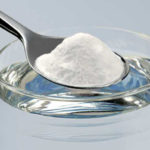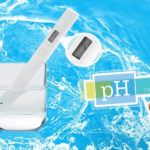“70% of our body weight is water” – this statement alone emphasizes the importance of water to humans.
According to health experts, water provides minerals, lubricates blood vessels, and facilitates the transportation of nutrients and oxygen to organs and cells in the body.
Additionally, water enables the body to self-regulate its temperature, maintaining a balance (around 37 degrees Celsius) despite changes in weather or external temperature. These facts highlight the significant impact of water on our health and bodily functions.

Forming good water-drinking habits will enhance the body’s flexibility, agility, and overall health. (Illustrative image)
To maximize the health benefits of drinking water, experts recommend cultivating these four habits:
1. Drink water as soon as you wake up
It is a mistake to do anything else before drinking water when you get out of bed, even if you don’t feel thirsty. Drinking water first thing in the morning helps replenish lost fluids from the night, boosts digestive enzymes, flushes out toxins, and promotes circulation and metabolism.
It is especially beneficial for those who sleep with air conditioning, as it can prevent a sore throat. Additionally, drinking water upon waking up is an effective way to lose weight and take care of your skin. Ladies, take note of this simple tip to enhance your beauty regimen.
2. Drink water even when you’re not thirsty
It is essential to drink water correctly and sufficiently, even when you don’t feel thirsty. Firstly, being proactive about drinking enough water ensures that your body maintains the necessary fluid levels for optimal organ function.
Moreover, maintaining adequate hydration improves digestion and nutrient absorption, reduces fatigue, and sustains energy levels.
3. Don’t overdo it
On average, we need about 2 to 2.5 liters of water per day. However, individual water needs vary depending on age, physical condition, the nature of one’s work, and actual health status. Some people may require more or less than this average amount.
But how much is too much? The limit is approximately 5 liters or more than 20 cups of water per day. Excessive water intake can overwhelm the kidneys, leading to a condition called water intoxication or hyponatremia, where the sodium levels in the blood become diluted.
Sodium is crucial for maintaining fluid balance inside and outside cells. When its levels drop due to high water intake, fluid can enter cells and cause them to swell, leading to seizures, coma, and brain function disorders. Symptoms may include confusion, drowsiness, and headaches. If left unchecked, it can also cause high blood pressure and a slow heart rate.
4. Avoid very cold water
During hot weather, it’s tempting to reach for ice-cold water or even crave it. However, this is a common mistake that can lead to various health risks, as experts have warned repeatedly.
Potential risks include vagus nerve inhibition, tooth damage, and, most dangerously, heat shock. Therefore, it is essential to protect your health by avoiding or at least reducing your intake of very cold water.





































